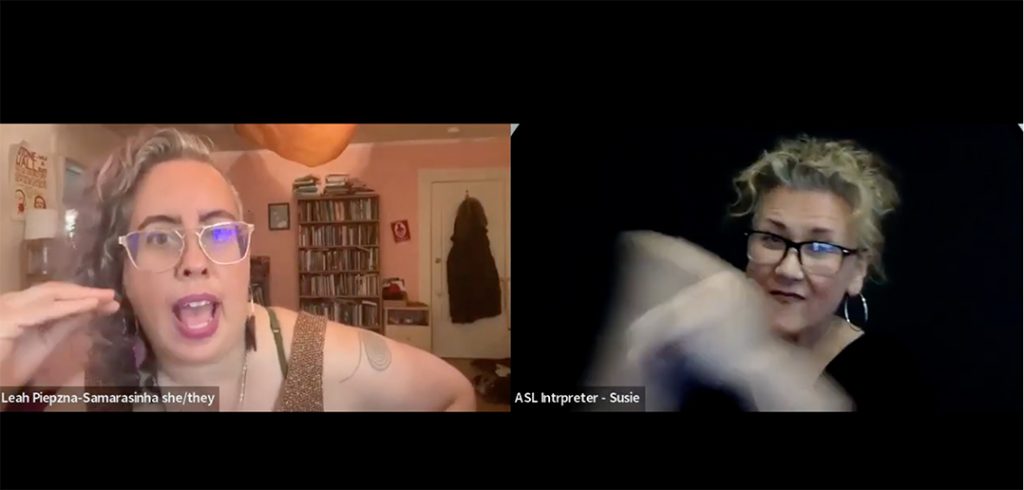In the fight for disability justice, creating a future of freedom is key.
That was the message of the “Disabled Freedom Portals,” Fordham’s 2022-2023 Distinguished Lecture on Disability delivered online last month by Leah Lakshmi Piepzna-Samarasinha, a disability and transformative justice movement worker and author.
“As a disabled person, you are needed. If you’re not disabled, you are also needed to learn from, support, and lift up disabled leadership and organizing in these times. Imagining disabled futures that are free is always an act of resistance,” she said, noting that in the minds of some, “we are not even supposed to survive to a future. We are not supposed to be free, and we are not supposed to have a right to decide what that freedom consists of.”
She acknowledged the activism she has seen from many in the community.
“I’m here to tell you that I know so many of you are already fighting like hell and we have to keep fighting like hell. Everything’s possible to win.”
For the April 12 talk, Piepzna-Samarasinha defined disability as “encompassing anyone who is disabled, chronically ill, neurodivergent, mad, deaf, or more than one. And that’s been 33% of the United States for a while,” she said, noting that some experts say disabled people are now close to being a majority of the population, given how many people now exhibit symptoms of long COVID and PTSD brought on by the pandemic.
She talked about the many ways disabled people have been discriminated against and outright attacked in modern history, from the Nazis demanding that parents surrender their disabled children to be killed, to violence against the trans community, to CDC director Rochelle Walensky calling it “encouraging news” in 2022 that most COVID deaths were attributed to people with co-occurring conditions, to New York City Mayor Eric Adams planning to institutionalize severely mentally ill people against their will.
“It’s so important for us to remember that none of these attacks are separate,” she said. “The connections between fascism, ableism, trans hatred, racism, and all forms of oppression are crystal clear.”
Piepzna-Samarasinha also shared how she came to be involved in disability justice.
“I’ve been autistic since I was born, even though I only figured it out when I was 41,” she said. “I got chronically ill and disabled when I was 21. And as a young neurodivergent survivor of violence, I was so lucky that I found communities of other young disabled survivors who are involved in punk, anti-Giuliani, queer, and anti-police brutality organizing in New York, and later in the psychiatric survivor movement in Toronto.
“None of us were experts, but we all know that we are experts on each other, our own lives, and we have so much to learn from each other.”
The annual Fordham Distinguished Lecture on Disability is organized by the Disability Studies Program and the Research Consortium on Disability. It is sponsored by the Office of the Chief Diversity Officer and co-sponsored by the Center for Community Engaged Learning, English Department, Graduate School of Religion and Religion Studies, Office of Multicultural Affairs, Office of Disability Services, Peace and Justice Studies, the Graduate School of Social Service, and Women, Gender and Sexuality Studies.
Watch the entire lecture below:

